Yes, you read it right, and perhaps it is not surprising to some of you. While the overall US GDP has grown almost three times since 1979 – 2018, the median real wage (50th percentile) increased by only 6.1% during the same period. A few graphs below will show that.
US GDP trend line using constant 2010 US $. Data from the World Bank.
Real wage trends in the US over the past 40 years have been flat
The below data is from the Congressional Research Service, “Real Wage Trend 1979 2018” report.
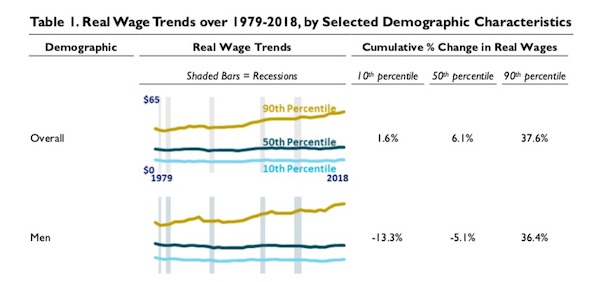
For Men, the median wage decreased by 5.1%. It hit the low-income (bottom 10th percentile) worker group the hardest with a decrease of 13.3%.
If you are keen to look at the absolute median annual income ($), you can refer to the census data here. The picture is pretty much the same.
For US employees without a college degree or higher, their real wage decreased across the board by as much as 12.3%.
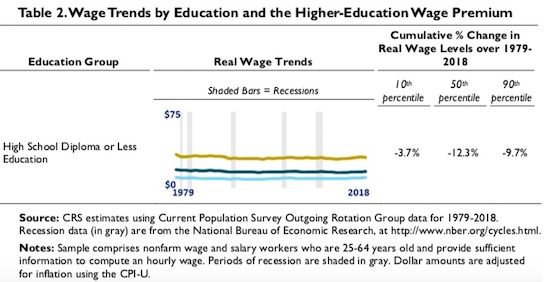
Social mobility in the US (or the American dream!) has been stagnated
Social mobility is critical to this conversation because an argument can be made that while real wage has been stagnated over the past 40 years for the bottom 50%, they can follow the American dream and move from lower-income brackets to higher ones. But did they?
Well, according to Raj Chetty and others, relative intergenerational mobility in the US has been flat for decades.
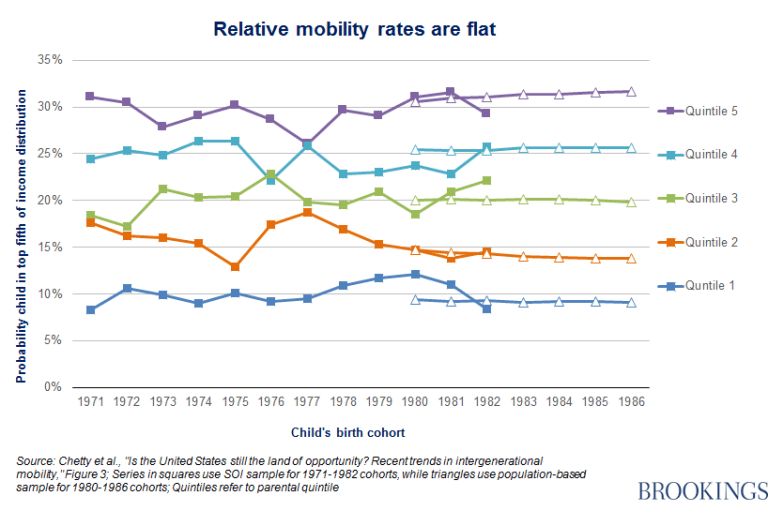
In absolute terms, only half of those born in the 1980s are making more money than their parents vs. 90% for those born in the 1940s.
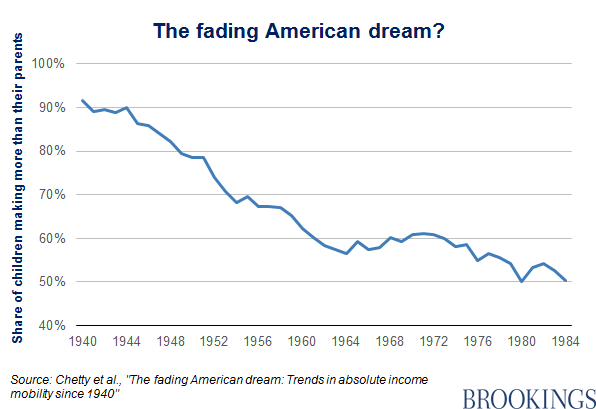
Research from Stanford shows a very similar trend, with Millenials experience less upward mobility than previous generations.
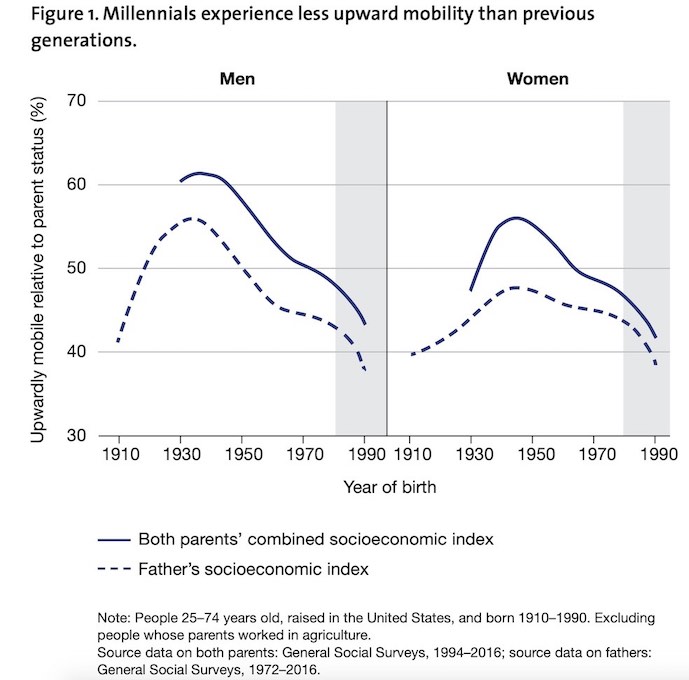
Gini index (representing Income/wealth inequality) in the US increased by 20%+ over the past 40 years
It is not a surprise then to see the rise of popularism, nationalism (the Trump presidency). I also wrote another piece about Standing on your head to feel more optimistic about the US. Joseph Stiglitz explained the situation a bit more in his TedX Talk “The cost of inequality“.
Is there hope? What can be done? There are a lot more qualified people who can talk about this than I am so I suggest you watch their talks, read their books, etc.
Thanks,
Chandler